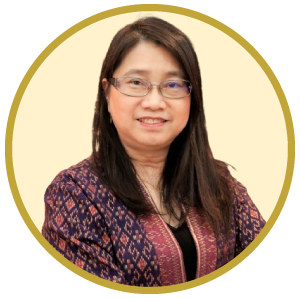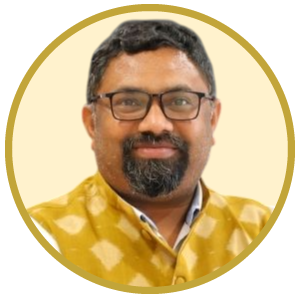Session 4: Strategies for Wellness: Crafting Macro Policies for Healthy, Happy, and Long-lived Ageing
The increasing number of older adults highlights the urgent need for macro policies that enhance both physical health and emotional well-being. Effective policies can promote healthy ageing by improving access to preventive healthcare, encourageing active lifestyles, and creating environments that foster happiness and longevity. This session will focus on developing macro policies designed to support the wellness of ageing populations. We will explore the challenges in crafting and implementing these policies, such as addressing diverse needs and ensuring effective execution. The discussion will center on strategies that improve physical health and emotional well-being, excluding social welfare and economic security aspects.Read More!
Discussion Questions:
- What macro policies are most effective in promoting physical health and emotional well-being for older adults, and are there any successful case studies that illustrate these policies in action?
- What challenges do policymakers encounter when designing and implementing wellness-focused policies for ageing populations, and how can these challenges be overcome?
- How can macro policies be tailored to address the unique physical and mental health needs of different subgroups within the ageing population?
- How can governments and organizations collaborate to develop and enforce policies that support a healthy and happy ageing process, and what examples of successful strategies can be highlighted?
- Should governments prioritize investments in preventive healthcare and wellness programs for older adults over other public health initiatives or other public services? What are the ethical and practical considerations of allocating limited resources toward ageing populations?
- Is it possible that macro policies focused on promoting health and well-being for older adults could inadvertently reinforce ageism or create expectations for elderly individuals to conform to specific health standards? How should policies be crafted to avoid such unintended consequences?
- Is it feasible to implement universal policies that promote wellness for all older adults, or should policies be more individualized based on varying needs and conditions?
Moderator:

Asst. Prof. Nanthaphan Chinlumprasert, PhD., R.N.,
Dean of Faculty of Nursing at Saint Louis College
Speakers:

Important points:
- Free Health Checks for All Residents:
○ Bangkok launched a health check program covering nearly 1 million people, including “shadow populations” (unregistered but residing in the city). The results are stored digitally and shared with individuals in real-time via mobile devices. - Zone-Based Health System Management:
○ Bangkok is divided into 7 health zones, each managed by a BMA hospital. This enables localized, targeted care and health promotion campaigns tailored to neighborhood-specific data. - Health Promotion Activities (e.g., Running, Step Counting):
○ Programs like district running events and monthly awards for high step counts promote active lifestyles. These initiatives were informed by health data showing widespread obesity and lifestyle-related conditions. - Outreach to Vulnerable Workers & Homeless:
○ Recognizing high diabetes risks among construction workers, health officials offer on-site health checks and policy discussions with employers. TB detection via mobile chest x-ray units among the homeless was also launched. - Elderly Mental Health & Social Clubs:
○ Data-driven identification of depression risks in elderly populations has led to launching “elder clubs,” intergenerational community centers, and tech-volunteer partnerships to prevent isolation. - Follow-up and Personalized Health Reminders:
○ The health system uses tech-enabled reminders and public health volunteers to encourage elderly follow-up visits, integrating care coordination through neighborhood engagement.
1. Assoc. Prof. Dr. Tavida Kamolvej,
Deputy Governor of Bangkok

Important points:
- Promotion of Yoga for Preventive Health:
○ Dr. Santos emphasized the importance of integrating traditional wellness practices like yoga into national health strategies. Citing figures like Swami Sivananda, he highlighted how daily yoga can contribute to longevity and healthy aging. - Health Insurance for All Elderly (60+):
○ A major policy introduced in India provides free health insurance (up to half a million rupees) for all citizens above 60, regardless of income. This reduces out-of-pocket expenditures and ensures access to quality healthcare, especially for non-pensioners. - Social Security and Mandatory Family Responsibility:
○ Some Indian provinces have mandated that children must financially support their elderly parents, deducting 10% of their income if necessary. This is paired with social pensions to ensure dignity and independence for the elderly. - Macro-Micro Policy Integration:
○ National health policy must be informed by community-level data. Micro-level programs like yoga groups or village health campaigns feed insights into national strategies, making policies more responsive. - Community Engagement Models:
○ The “Foot Soldiers for Health” program in India brings older adults together for communal activities, emphasizing intergenerational support, such as older seniors being cared for by younger seniors.
2. Prof. Dr. Santosh Kraleti,
Executive Director of Foot Soldiers for Health (A Public Health Initiative), National Advisor on Health of Doctors for Seva, India

Important points:
- Healthy Aging Is More Than Wellness:
○ Aging should not be treated as a problem but as an opportunity. Policies should support seniors in all functional stages—not just those who are still active but also the home-bound and bedridden. - Three Functional Stages of Elderly People:
○ Dr. Silipan identifies three groups: (1) high stable capacity, (2) declining capacity, and (3) significant loss of capacity. Different strategies (preventive care, long-term care, palliative care) are required for each. - Macro vs Micro Strategy Alignment:
○ Macro policies include national insurance, pension systems, and age-friendly infrastructure. Micro strategies involve individualized health promotion, caregiver training, cognitive stimulation, and home-based services. - Integration of Long-Term Care into National Health Systems:
○ Thailand’s community-based long-term care model, supported by the National Health Security Office (NHSO), is being recognized by WHO as a potential global model. It bridges acute and long-term care gaps. - Community-Based Daycare Centers as Demonstration Models:
○ Dr. Silipan’s center supports elderly individuals with declining capacities by offering exercise, memory stimulation, healthy food guidance, and social engagement. These centers also gather data to inform policy. - Support for Caregivers:
○ Recognizing caregiver burnout, her center provides not only services for the elderly but also education and support groups for their family members, building resilience and improving home care quality.
3. Assoc. Prof. Capt. Dr. Siriphan Sasat,
Director of Centre for Health and Well-being Promotion for Older People, Faculty of Nursing, Chulalongkorn University
